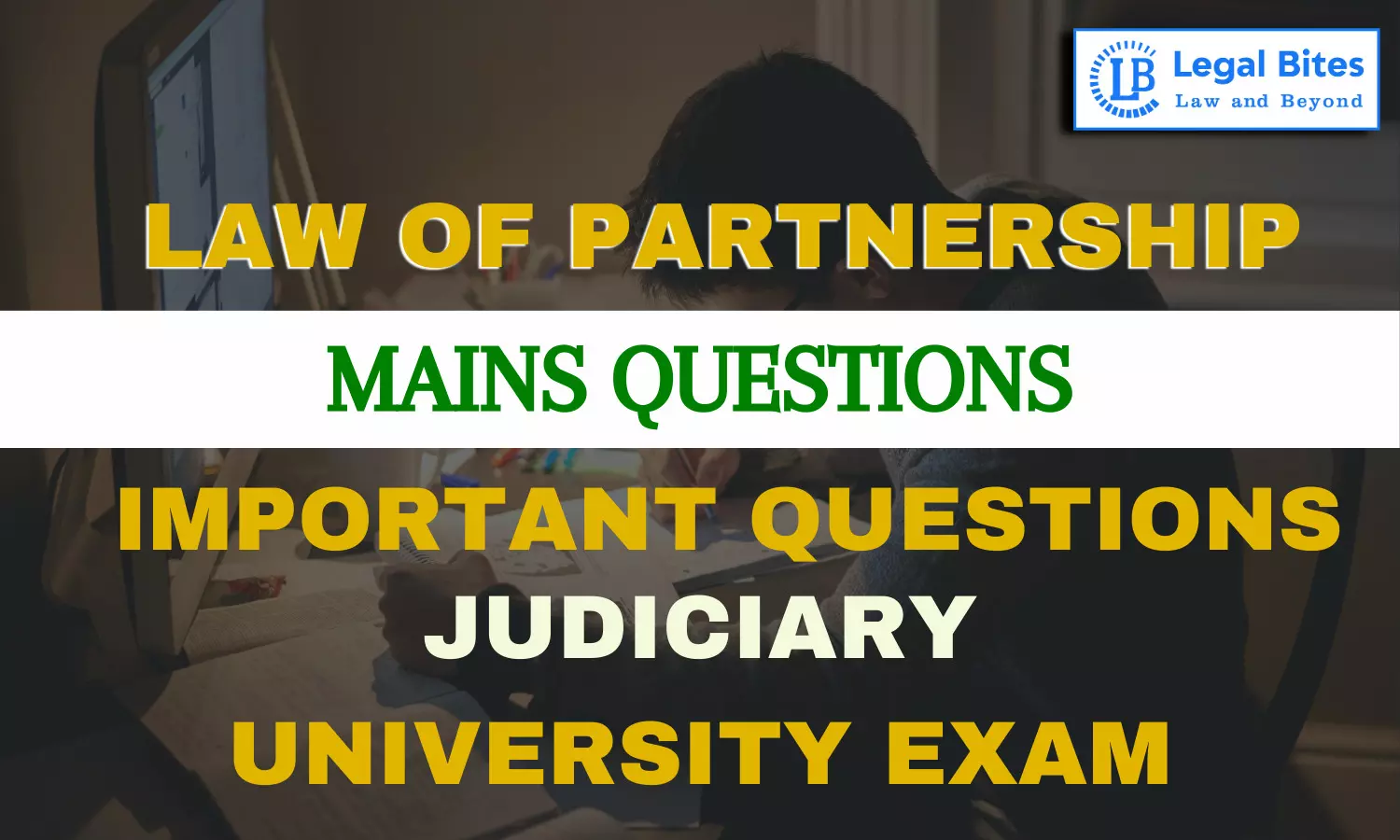A agrees with B, a goldsmith, to buy and furnish gold to B, to be worked up by him and sold, and that they shall share in the resulting profit or loss. Are A and B partners? Give reasons.
Find the answer to the mains question of the Law of Partnership only on Legal Bites.

Question: A agrees with B, a goldsmith, to buy and furnish gold to B, to be worked up by him and sold, and that they shall share in the resulting profit or loss. Are A and B partners? Give reasons.Find the answer to the mains question of the Law of Partnership only on Legal Bites. [A agrees with B, a goldsmith, to buy and furnish gold to B, to be worked up by him and sold, and that they shall share in the resulting profit or loss. Are A and B partners? Give reasons.]AnswerAccording...
Question: A agrees with B, a goldsmith, to buy and furnish gold to B, to be worked up by him and sold, and that they shall share in the resulting profit or loss. Are A and B partners? Give reasons.
Find the answer to the mains question of the Law of Partnership only on Legal Bites. [A agrees with B, a goldsmith, to buy and furnish gold to B, to be worked up by him and sold, and that they shall share in the resulting profit or loss. Are A and B partners? Give reasons.]
Answer
According to section 4 of Indian Partnership Act, 1932 the following essentials are necessary to constitute a partnership—
(i) There should be an agreement between the persons who want to be partners.
(ii) The purpose of creating a partnership should be carrying on business.
(iii) The motive for the creation of a partnership should be earning and sharing profits.
(iv) The business of the firm should be carried on by all of them or any of them acting for all i.e., is mutual agency.
In Pratibha Rani v. Saroj Kumar, (1985) 2 SCC 370 (384), the Supreme Court pointed out the two essential elements of partnership—
(a) Some real or external physical act by two persons to start a business.
(b) If all carry or any one of them carries the business, partners shall share profits on the basis of the shares allotted to them under the agreement.
The first essential ingredient of partnership is that there must be an agreement between the persons constituting the partnership. Section 4 makes it clear that a partnership is a relationship between persons who have agreed to share profits. There can be no partnership without an agreement. The agreement is the cornerstone of the partnership. The agreement here means a contract. This element indicates the voluntary contractual nature of the partnership. The presence of an agreement has to be there. If the basis of the relationship between certain persons is not an agreement, the association would not be a partnership.
Applying the aforesaid provisions to the present case at hand, where A agrees with B, a goldsmith, to buy and furnish gold to B, to be worked on by him and sold, and that they shall share in the resulting profit or loss.
In this case, A and B have agreed to buy and furnish gold to B, who will work on it and sell it. Further, A and B have agreed to share in the resulting profit or loss from the business. This demonstrates their intention to share the profits, and the act of B of buying, furnishing, and working on the gold with the intention to sell it constitutes a business activity. Therefore, there is an agreement between A and B. A and B are partners under the Partnership Act.

Mayank Shekhar
Mayank is an alumnus of the prestigious Faculty of Law, Delhi University. Under his leadership, Legal Bites has been researching and developing resources through blogging, educational resources, competitions, and seminars.
